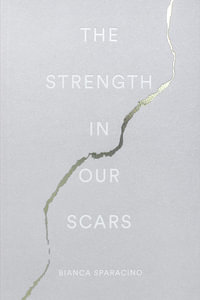"Harrowing and comforting, this riveting collection is therapeutic by design. As both an inpatient and outpatient of mental hospitals, poet Nancy Dunlop becomes a keen observer: "What we did, mostly/ was watch each other." One patient is "sad. Slumped and furtive." One doctor is "like a job title . . . a perfect/ brochure." In swift, visceral portraits, the poet gives glimpses of the agitated mind's carnival as well as the medicated body's shudder, quiver, spasm. Hospital Poems opens with agitation and an apparition as a newcomer enacts a seemingly endless loop. The book ends with patience: Two souls in a waiting room offer solace by their shared presence. We watch as each body "holds on for dear life." Readers are entrusted with stories of those who "had already/ suffered, already knew/ how to be compassionate." Dunlop's humanity teaches us to build relationships. Her violent concision cultivates a clarity that helps us navigate trauma with empathy."
-Lori Anderson Moseman, Okay?
"In each of these keenly observed poems, Dunlop portrays a person in a unique struggle to survive a mental crisis or the soulless hospital environment. But these are anything but depressing tales. Rather, "Hospital Poems" is a short but deftly sketched set of portraits of people who shine with the light of humanity.
Nancy Dunlop may not [by her own admission] be able to explain how a person turns into a mental patient but she knows exactly how to turn that mental patient back into a person."
-Claudia Ricci, Sister Mysteries
"Life gets out of hand. Despair is misunderstood. But there's no loss of - or wasted - words in the bravely written, honest portraits of the co-patients and experience Nancy Dunlop offers up in Hospital Poems. Circumstances for these poems bring heightened awareness to her lines and stanzas, grounded in vulnerability and much detail."
-Christopher Funkhouser, Prehistoric Digital Poetry: An Archaeology of Forms, 1959-1995
"It seems there's not a person left on the planet who doesn't know of someone who has been institutionalized, medicated, DSM diagnosed. Or knows countless others below radar, in crisis but lacking the means or ability to seek medical help, therapy, counseling. What Nancy Dunlop has done, however, is make us aware that this "epidemic" is not something "out there," a contagion belonging to others; to paraphrase her, we are all perpetually writing our way into and out of our own private hospitals. Coping in an age where living so often just seems to get harder, more overwhelming--sadder--seems increasingly a matter of constantly travelling back and forth on some despair-felicity continuum. The inpatient/outpatient binary is literal in her book, but it offers an emotional metaphor for managing the "hauntings and agitations" so many of us can't help but daily experience in varying degrees. And in having the guts to share her own intimate experiences living on the extreme edges of this continuum, Dunlop's matter-of-fact, crystal clear observations show people in crisis as the regular folk that they are. That we all are. This is more than a poetics of empathy; what Dunlop does is calmly gives us permission to consider sharing, and bringing our own narratives, into the mix."
-Derek Owens, The Villagers
























